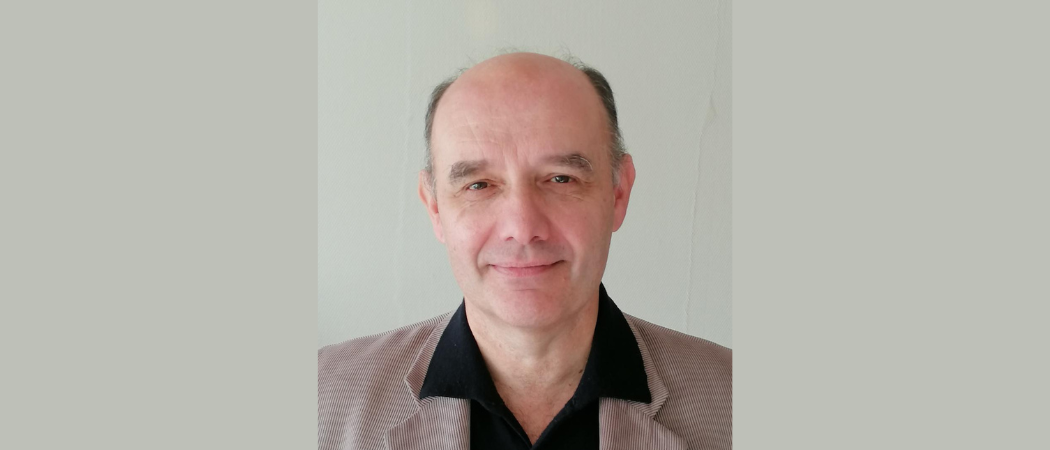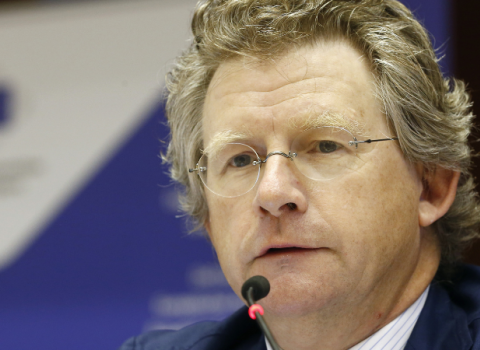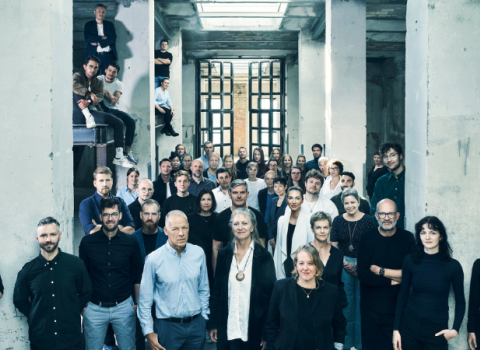Former programme manager warns of Commission bureaucrats tightening their grip on €10B EU innovation funder

Iordanis Arzimanoglou, EIC Programme Manager June 2020 – May 2024. Photo credits: European Union
The European Innovation Council (EIC) needs independence from the European Commission if it is to succeed in its mission of boosting Europe’s innovation potential, says former programme manager Iordanis Arzimanoglou.
Arzimanoglou spent the last four years at the EIC, setting the strategic direction for the council’s work in health and biotech. As the first field-specific programme manager at the agency, he also set out the blueprint for the role.
The EIC’s formative years as a fully-fledged part of Horizon Europe since 2021, it’s fair to say, did not go smoothly. Many of the hiccups were around the Commission setting up and managing a fund that makes direct equity investments in start-ups. Problems over carrying out due diligence – requiring very different expertise than assessing grant applications – led to months-long delays in getting the funding out.
The deadlock and delays got so worrying, the European Parliament threatened to block the EIC’s funding. As the EIC dealt with one issue after another, Arzimanoglou sensed the Commission tighten its grip on the funder. Now, five ‘parent’ directorate generals of the Commission have a role in oversight of the EIC, hoping to avoid any more troubles. .
Arzimanoglou, who left the EIC last month, says this is changing the nature of the programme manager role and is fast restricting the EIC’s ability to strategically fund innovation, including the work of its ten programme managers in domains such as food chain technologies, quantum, construction, space, electronics and energy systems.
“They wanted more say in what the EIC does,” says Arzimanoglou. “The reality internally is that they are trying to influence more and restrict the independence of the programme manager.”
The programme manager role was originally envisaged as an independent expert who guides the funder’s work in a key strategic sector, such as biotech or renewable energy, by pulling together a portfolio of projects.
The key part of the job was foresight. For example, in the health and biotech portfolio, the EIC started funding biomanufacturing projects in health three years ago. This year, the EU set it as a strategic priority in its communication. The US did it two years ago. Either way, with the policy now official, the EIC already has firepower in the area.
However in Arzimanoglou’s view ‘programme’ managers are fast becoming ‘project’ managers. Last year, the Commission quietly moved the strategic policymaking arm of the EIC from the dedicated EU agency, EISMEA, that distributes the funding, back to the main Commission directorate.
Arzimanoglou says this is failing the vision of the EIC. As he sees it, the EIC should be developed to strategically maximise its potential to produce breakthrough technology. That means pooling innovators in portfolios and getting them to work together, as well as setting better targeted funding calls to tackle specific challenges.
He imagines in the future the EIC evolving to a number of different arms, such as EIC Health, EIC Digital and EIC Green.
“The idea to be able to cover innovation generally won’t work in the end, not because of regulation, but because these are different areas in terms of needs,” says Arzimanoglou.
Right now, EIC runs smaller targeted calls looking for innovation projects and start-ups in specific scientific fields but most of its money is distributed through open calls in its three big programmes. These are the Accelerator, which awards grants and equity funding to start-ups; the Pathfinder for innovative early-stage projects, and Transition grants for bringing existing scientific research closer to the market.
This isn’t the first call for the EIC to gain more independence from the Commission. In 2022, European Parliament’s Christian Ehler called for more autonomy to free the EIC from the internal politics of the Commission and give it more flexibility to act as the risk-friendly innovation funder it was envisioned to be.





 A unique international forum for public research organisations and companies to connect their external engagement with strategic interests around their R&D system.
A unique international forum for public research organisations and companies to connect their external engagement with strategic interests around their R&D system.